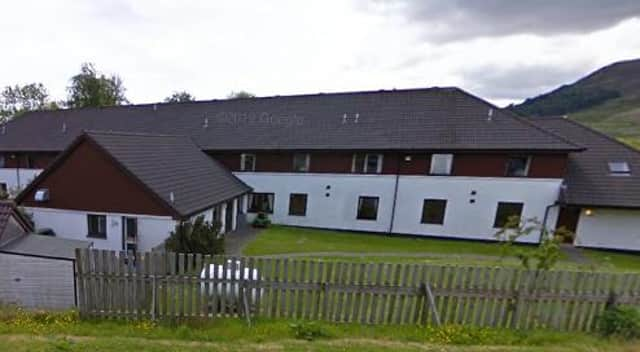NHS Highland has £1.3m annual bill for Covid-hit care home


MSPs were told by health board chiefs that it would be cheaper for NHS Highland to purchase the places from a private provider.
The home in Portree was taken over from the independent business HC-One last August, at a £900,000 cost to taxpayers, after it was hit by a Covid outbreak which killed 10 people.
Advertisement
Hide AdAdvertisement
Hide AdAsked at Holyrood’s health committee by SNP MSP Sandra White what financial impact the takeover had on NHS Highland’s accounts, David Garden, finance director, said: “The cost of us running Home Farm is a fair bit more expensive. It would be cheaper to purchase the activity from the independent sector. It's £1.3m per annum more for us to run it and that's primarily around higher wages and pension costs.”
He added: “In the current year the government has provided additional funding to March 31st to help get over the hump of additional costs and that will form part of our planning going into next year.”
Overall, NHS HIghland expects to have spent £67m dealing with the pandemic in the last financial year, and has received just over £44m from the Scottish Government, he said.
MSPs were also told that the health board had made progress in putting into place recommendations from the Sturrock Report into allegations of systemic bullying in the organisation.
Chief Executive Pam Dudek said there were currently 23 open cases being dealt with through the NHS Highland bullying and harassment policy.
She added: "Nine have been open for more than nine months, a significant period of time, and tend to be fairly complex and multi-factorial and the push from myself is to conclude those as quickly as possible.
“We’ve got one case at early resolution, nine at investigation stage, three at the hearing stage and 10 at the appeal and review stage. The previous 12 months there were 32 cases raised and 17 had been resolved, five of which recommended no action, two were unable to proceed due to people leaving, five were resolved through early intervention and resolution, three recommended support, and two recommended disciplinary action.”
Asked if the pandemic could make bullying worse, she said: “I think the striking thing is when in a crisis or dealing with a common issue, is that it tends to bring people together and we’ve seen some really collaborative action. I'm also aware when people are under pressure that sometimes you can get the worst of people, there are times when things get fraught and people don't behave in the right way, and we need to get a better handle on how well we deal with that.”
Advertisement
Hide AdAdvertisement
Hide AdShe said there had been a framework put in place to assess the Sturrock recommendations, including the launch of the Healing Process and a “culture oversight group”.
Boyd Robertson, NHS Highland chairman, added: “To really bring about change in culture you have to understand the difficulties that arose and what lay behind them.
“The chair of the culture oversight group has been leading on a piece of work with whistleblowers looking at the root causes of the issues and that will inform future development of our action plan."
A message from the Editor:Thank you for reading this article. We're more reliant on your support than ever as the shift in consumer habits brought about by Coronavirus impacts our advertisers.
If you haven't already, please consider supporting our trusted, fact-checked journalism by taking out a digital subscription.
Comments
Want to join the conversation? Please or to comment on this article.